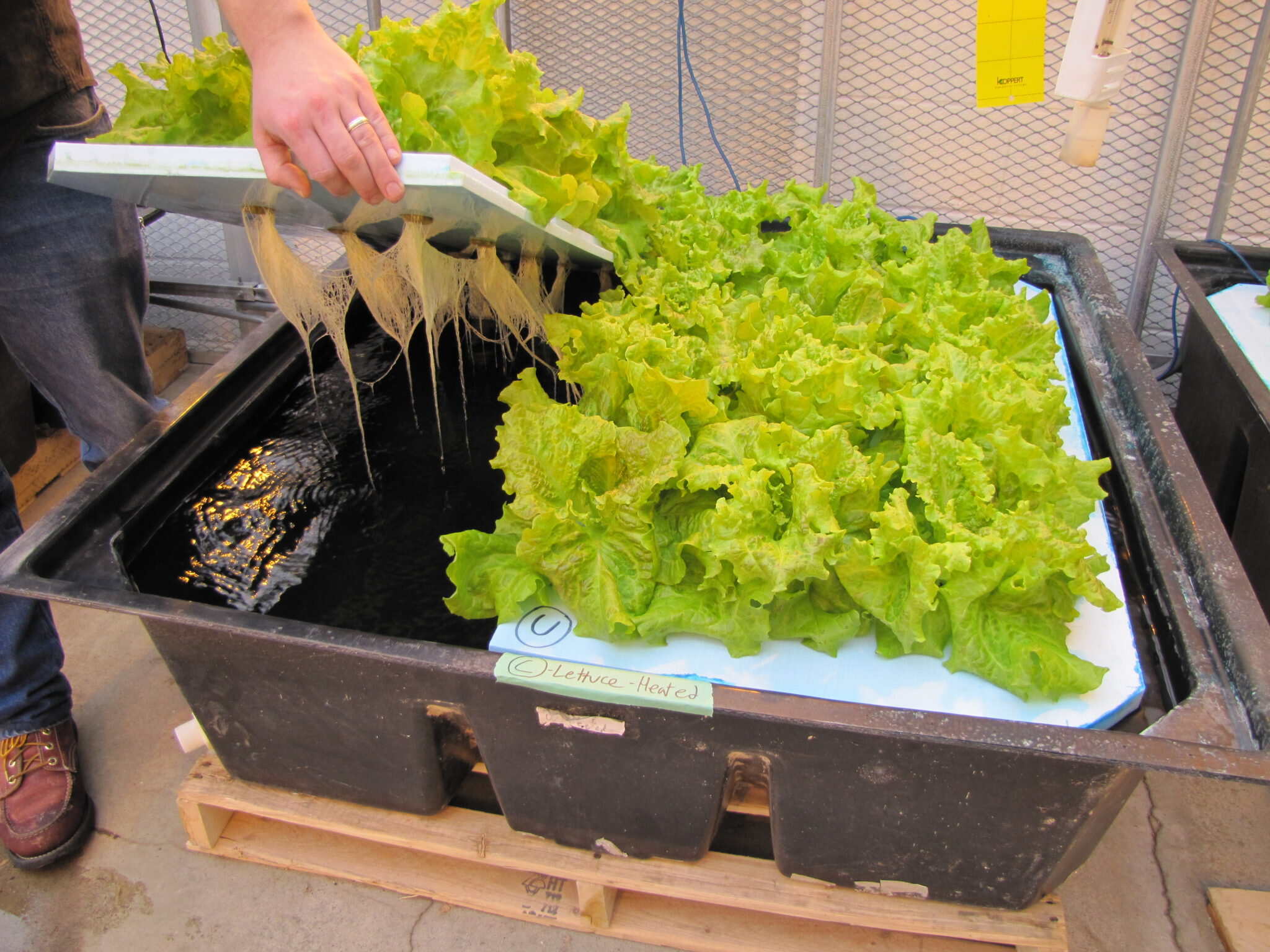Home>Gardening Tips and Tricks>Eco-Friendly Gardening>How To Start A Permaculture Company


Eco-Friendly Gardening
How To Start A Permaculture Company
Published: February 15, 2024
Learn how to start an eco-friendly gardening business with our comprehensive guide to permaculture company setup, operations, and sustainable practices. Start your journey towards a greener future today!
(Many of the links in this article redirect to a specific reviewed product. Your purchase of these products through affiliate links helps to generate commission for Chicagolandgardening.com, at no extra cost. Learn more)
Table of Contents
**
Introduction
**
Welcome to the exciting world of permaculture, where sustainable gardening practices and ecological harmony come together to create bountiful, resilient, and regenerative ecosystems. If you have a passion for environmental stewardship and a love for gardening, starting a permaculture company can be a fulfilling and impactful endeavor. This comprehensive guide will walk you through the essential steps to launch and grow a successful permaculture business, from understanding the core principles of permaculture to navigating the intricacies of market analysis, business planning, legal considerations, funding, operations, marketing, sales, finances, and sustainable growth strategies.
Embarking on this journey requires a deep commitment to sustainable living and a dedication to nurturing the earth while reaping its abundant rewards. As you delve into the world of permaculture, you will discover the interconnectedness of all living beings and the profound impact that conscious, regenerative agriculture can have on the health of our planet. Whether you are a seasoned gardener looking to expand your sustainable practices into a business venture or a passionate environmental advocate seeking to make a tangible difference, the principles and practices of permaculture offer a holistic approach to creating thriving ecosystems while fostering community resilience.
Throughout this guide, you will gain valuable insights into the foundational concepts of permaculture, the market landscape for eco-friendly gardening services, the intricacies of business planning and legal compliance, the avenues for securing funding, the operational aspects of setting up a permaculture company, effective marketing and sales strategies, prudent financial management, and sustainable scaling and growth practices. By the end of this journey, you will be equipped with the knowledge and tools to establish a thriving permaculture business that not only sustains itself but also contributes to the well-being of the planet and its inhabitants.
So, let's embark on this transformative journey into the world of permaculture entrepreneurship, where innovation, sustainability, and ecological harmony converge to create a brighter, greener future for generations to come.
Understanding Permaculture
At its core, permaculture embodies a holistic approach to sustainable living, drawing inspiration from natural ecosystems to create harmonious and regenerative environments. By integrating indigenous wisdom, modern science, and ethical design principles, permaculture seeks to minimize waste, promote biodiversity, and foster resilience in both natural and human-made systems. Central to permaculture is the concept of “permanent agriculture,” which emphasizes the development of self-sustaining food production systems that mimic the diversity, stability, and resilience of natural ecosystems.
Permaculture design principles revolve around observing and learning from nature, utilizing renewable resources, and maximizing the efficiency of energy and materials. By employing techniques such as agroforestry, polyculture planting, water harvesting, and soil regeneration, permaculture aims to create abundant and diverse yields while enhancing the overall health of the environment. Through thoughtful integration of plants, animals, and structures, permaculture systems strive to create mutually beneficial relationships that contribute to the well-being of the entire ecosystem.
Moreover, permaculture emphasizes the importance of community engagement and sharing knowledge, fostering a culture of collaboration and collective learning. By promoting local food production, seed saving, and sustainable land management practices, permaculture not only addresses environmental concerns but also strengthens community resilience and self-reliance.
Understanding permaculture also involves recognizing the ethical principles that guide its practices, including care for the earth, care for people, and fair share. These principles underscore the importance of environmental stewardship, social equity, and the equitable distribution of resources, aligning permaculture with the broader goals of sustainability and social responsibility.
By embracing the fundamental tenets of permaculture, individuals and businesses can contribute to a more sustainable and regenerative future, where ecological integrity, social well-being, and economic prosperity intersect to create thriving and resilient communities.
Market Analysis
Conducting a thorough market analysis is essential for identifying opportunities and understanding the demand for eco-friendly gardening and permaculture services. The growing awareness of environmental sustainability and the increasing preference for organic, locally sourced produce have contributed to a rising demand for permaculture solutions. As consumers seek to reduce their ecological footprint and support regenerative agricultural practices, the market for permaculture services continues to expand.
Key aspects of the market analysis include assessing the demographic and psychographic profiles of potential customers, understanding their preferences for sustainable products and services, and identifying the specific needs and pain points that permaculture can address. By segmenting the market based on factors such as location, lifestyle choices, and environmental values, entrepreneurs can tailor their offerings to resonate with target audiences.
Furthermore, analyzing the competitive landscape is crucial for understanding the strengths and weaknesses of existing eco-friendly gardening businesses and identifying gaps that a new permaculture company can fill. This involves evaluating the range of services offered, pricing strategies, customer satisfaction levels, and the effectiveness of marketing and branding efforts within the sustainable gardening sector.
Emerging trends in sustainable living, such as the rise of community-supported agriculture (CSA), urban farming initiatives, and the integration of permaculture principles in landscaping and urban development, present opportunities for innovative permaculture businesses to meet evolving consumer needs. By staying attuned to market trends and consumer preferences, entrepreneurs can position their permaculture company as a leader in providing holistic, regenerative solutions for environmentally conscious individuals and communities.
Overall, a comprehensive market analysis serves as the foundation for developing a strategic business plan, guiding product and service offerings, and establishing effective marketing and sales strategies that resonate with the values and aspirations of the target market. By understanding the dynamics of the eco-friendly gardening and permaculture market, entrepreneurs can position their businesses for sustainable growth and meaningful impact within the burgeoning sustainable living movement.
Business Planning
Developing a robust business plan is a critical step in laying the groundwork for a successful permaculture company. The business plan serves as a roadmap, outlining the vision, mission, goals, and strategies that will guide the enterprise toward sustainable growth and impact. Key components of the business plan include a detailed description of the permaculture services and products offered, an analysis of the target market and competition, a comprehensive marketing and sales strategy, and a clear operational and financial plan.
Central to the business plan is articulating the unique value proposition of the permaculture company, highlighting how its offerings align with the principles of sustainability, regenerative agriculture, and environmental stewardship. By clearly defining the company’s purpose and differentiation, entrepreneurs can effectively communicate their brand identity and establish a compelling presence in the eco-friendly gardening market.
Furthermore, the business plan should encompass a thorough assessment of the operational requirements, including the resources, infrastructure, and partnerships needed to deliver high-quality permaculture services. This involves outlining the supply chain, equipment needs, sourcing of organic inputs, and the development of strategic alliances with local growers, nurseries, and sustainable agriculture organizations.
Financial planning is another pivotal aspect of the business plan, encompassing revenue projections, cost analysis, and the allocation of funds for initial setup and ongoing operations. Entrepreneurs must carefully consider the financial implications of sustainable practices, such as organic certification, soil conservation measures, and energy-efficient infrastructure, while ensuring that the business remains economically viable and competitive.
Moreover, integrating sustainability metrics and impact assessment into the business plan demonstrates a commitment to transparency and accountability, resonating with environmentally conscious consumers and potential investors. By quantifying the ecological benefits and social contributions of the permaculture company, entrepreneurs can showcase the tangible outcomes of their regenerative practices and community engagement efforts.
In essence, a well-crafted business plan not only provides a roadmap for the permaculture company’s success but also serves as a compelling narrative that inspires confidence in stakeholders, fosters strategic decision-making, and aligns the business with its overarching mission of environmental stewardship and sustainable prosperity.
Legal and Regulatory Considerations
Navigating the legal and regulatory landscape is paramount for establishing a permaculture company that operates in compliance with environmental standards, land use regulations, and business laws. From zoning ordinances to organic certification requirements, entrepreneurs venturing into sustainable gardening and permaculture must ensure adherence to a myriad of legal considerations.
One of the primary legal considerations involves land use and zoning regulations, which dictate the permissible activities on a given property. Entrepreneurs must assess local zoning laws to determine whether their permaculture activities, such as agroforestry, aquaculture, or on-site composting, align with the designated land use categories and any applicable conservation easements.
Furthermore, obtaining necessary permits and approvals, such as water rights permits, agricultural use permits, or conditional use permits for on-farm sales and agritourism, is essential for operating within the bounds of the law. Compliance with environmental regulations, including water quality standards, soil conservation practices, and wildlife habitat protection, is integral to upholding the ecological integrity of permaculture operations.
For businesses engaged in organic production, understanding and meeting the requirements for organic certification is crucial. Compliance with the National Organic Program (NOP) standards, maintaining organic integrity in production and handling practices, and keeping thorough records are essential for marketing products as certified organic and building consumer trust in the authenticity of sustainable practices.
Moreover, legal considerations extend to business structure and intellectual property protection. Entrepreneurs must carefully select a business entity, such as a sole proprietorship, partnership, limited liability company (LLC), or corporation, taking into account liability protection, tax implications, and operational flexibility. Additionally, safeguarding intellectual property rights for unique permaculture designs, proprietary products, or innovative processes through patents, trademarks, or copyrights can provide a competitive advantage and protect the company’s innovations.
By proactively addressing legal and regulatory considerations, entrepreneurs can establish a solid foundation for their permaculture company, mitigating risks, ensuring compliance, and fostering a reputation for ethical and responsible business practices within the sustainable gardening industry.
Finding Funding
Securing adequate funding is a critical step in realizing the vision of a thriving permaculture company. Whether launching a new venture or expanding an existing operation, entrepreneurs in the sustainable gardening and permaculture sector can explore various avenues to finance their initiatives and drive sustainable growth.
One of the primary sources of funding for permaculture businesses is through grants and subsidies offered by government agencies, non-profit organizations, and private foundations that support sustainable agriculture, environmental conservation, and community resilience initiatives. These funding opportunities often target projects focused on regenerative land management, agroecology, and the promotion of biodiversity, providing financial support for innovative permaculture practices and educational outreach programs.
Entrepreneurs can also seek financing through impact investors, ethical funds, and community development financial institutions (CDFIs) that prioritize investments in businesses with a strong commitment to environmental and social impact. These investors are often aligned with the values of permaculture and sustainable living, offering capital that supports the development of regenerative agricultural systems, eco-friendly infrastructure, and community-based food initiatives.
Furthermore, exploring crowdfunding platforms tailored to sustainable agriculture and ecological projects can provide an avenue for raising capital while engaging a community of environmentally conscious supporters. Crowdfunding campaigns can not only generate financial resources but also raise awareness about the mission and impact of the permaculture company, fostering a network of advocates and patrons who are passionate about sustainable living and regenerative practices.
Traditional financing options, including small business loans, lines of credit, and microfinance programs, offered by banks, credit unions, and community development financial institutions, can provide entrepreneurs with the necessary capital to launch or expand their permaculture enterprises. By articulating a robust business plan, demonstrating a commitment to sustainable practices, and showcasing the market potential of eco-friendly gardening and permaculture services, entrepreneurs can position their businesses as viable candidates for conventional financing.
By exploring diverse funding sources and tailoring their approaches to align with the values and objectives of permaculture, entrepreneurs can access the financial resources needed to bring their sustainable gardening ventures to fruition, fostering ecological resilience, community empowerment, and a regenerative approach to agriculture.
Setting Up Operations
Establishing efficient and sustainable operational processes is fundamental to the success of a permaculture company. From land preparation and resource management to the implementation of regenerative agricultural practices, setting up operations requires meticulous planning, a deep understanding of ecological principles, and a commitment to holistic stewardship of the land.
One of the initial steps in setting up operations involves site assessment and land preparation. Conducting a thorough analysis of the property, including soil quality, water availability, and microclimate considerations, is essential for designing integrated permaculture systems that optimize resource use and enhance ecological resilience. Implementing soil conservation measures, water harvesting techniques, and biodiversity-enhancing strategies forms the foundation for creating regenerative landscapes that support diverse plant and animal species.
Integrating permaculture design principles, such as agroforestry, polyculture planting, and companion planting, into the layout and management of the site fosters synergistic relationships among elements of the ecosystem, maximizing productivity while minimizing environmental impact. By carefully selecting plant species that complement each other, utilizing natural pest control methods, and promoting soil health through organic practices, permaculture operations can create thriving, self-sustaining ecosystems that yield abundant harvests.
Furthermore, establishing partnerships with local suppliers of organic inputs, heirloom seeds, and perennial crops is integral to sourcing the necessary resources for permaculture operations. Building alliances with neighboring farms, nurseries, and sustainable agriculture organizations not only facilitates the acquisition of high-quality inputs but also fosters a sense of community and collaboration within the sustainable agriculture sector.
Implementing efficient and eco-friendly infrastructure, such as renewable energy systems, water-efficient irrigation methods, and composting facilities, is essential for reducing the ecological footprint of permaculture operations. By embracing sustainable technologies and practices, entrepreneurs can demonstrate a commitment to environmental stewardship while optimizing resource use and minimizing waste.
Overall, setting up operations for a permaculture company entails a holistic approach to land management, resource utilization, and ecological design, embodying the principles of regenerative agriculture and sustainable living. By integrating permaculture ethics and design principles into every facet of their operations, entrepreneurs can create thriving, resilient ecosystems that exemplify the transformative potential of regenerative practices.
Marketing and Sales
Effective marketing and sales strategies are essential for promoting the unique value proposition of a permaculture company and engaging with environmentally conscious consumers who prioritize sustainable living and regenerative practices. By conveying the benefits of permaculture services, fostering community connections, and cultivating a brand identity aligned with ecological stewardship, entrepreneurs can position their businesses for success in the sustainable gardening market.
Central to the marketing strategy is communicating the ecological and social impact of permaculture practices. Utilizing storytelling, educational content, and multimedia platforms, entrepreneurs can raise awareness about the environmental benefits of permaculture, such as soil regeneration, carbon sequestration, and biodiversity conservation, while highlighting the community-building aspects of sustainable agriculture.
Engaging in community outreach initiatives, such as hosting educational workshops, farm tours, and volunteer opportunities, not only fosters connections with potential customers but also demonstrates a commitment to knowledge sharing and environmental education. By positioning the permaculture company as a hub for learning and sustainable living, entrepreneurs can build a loyal customer base and contribute to the broader mission of ecological awareness and community resilience.
Furthermore, developing a compelling brand identity that conveys the values of sustainability, authenticity, and environmental responsibility is pivotal for differentiating the permaculture company in the market. Through thoughtful branding, including eco-friendly packaging, sustainable design elements, and transparent communication about the sourcing and production practices, entrepreneurs can cultivate a brand image that resonates with environmentally conscious consumers and fosters trust in the integrity of their products and services.
Embracing digital marketing channels, such as social media, content marketing, and e-commerce platforms, provides avenues for reaching a broader audience of eco-minded individuals who seek sustainable gardening solutions. Leveraging online platforms to showcase the beauty of permaculture landscapes, share educational resources, and offer unique products can amplify the reach of the permaculture company and attract a diverse clientele of environmentally conscious consumers.
In tandem with marketing efforts, developing a sales strategy that emphasizes personalized customer engagement, transparent pricing, and exceptional service is crucial for converting interest into tangible support for the permaculture business. By fostering relationships with customers based on shared values and a commitment to sustainable living, entrepreneurs can cultivate a loyal customer base that values the ecological and social contributions of the permaculture company.
Ultimately, effective marketing and sales strategies for a permaculture company revolve around authentically communicating the environmental and social benefits of regenerative practices, fostering community connections, and cultivating a brand identity that reflects the values of sustainability and ecological stewardship.
Managing Finances
Sound financial management is integral to the long-term sustainability and growth of a permaculture company. By implementing prudent financial practices, entrepreneurs can ensure the economic viability of their operations while upholding the principles of environmental stewardship and social responsibility.
One of the foundational aspects of managing finances for a permaculture business involves developing a detailed budget that accounts for the costs associated with land preparation, infrastructure development, organic inputs, labor, and ongoing operational expenses. By meticulously outlining the financial requirements for implementing regenerative practices and sustainable infrastructure, entrepreneurs can make informed decisions about resource allocation and expenditure.
Embracing sustainable financial practices, such as cost-effective energy solutions, water conservation measures, and organic waste management, not only reduces operational expenses but also aligns with the ecological ethos of permaculture. By integrating sustainability metrics into financial planning, entrepreneurs can quantify the environmental impact of their financial decisions and optimize resource use in a manner that supports ecological integrity.
Moreover, exploring avenues for financial efficiency, such as leveraging renewable energy incentives, implementing water-saving technologies, and embracing circular economy principles, can contribute to cost savings while minimizing the ecological footprint of the permaculture operations. By prioritizing investments in sustainable technologies and practices, entrepreneurs can achieve a balance between economic prosperity and environmental responsibility.
Establishing transparent financial reporting and accountability mechanisms is essential for fostering trust with stakeholders, including investors, customers, and the broader community. By maintaining clear records of financial transactions, operational costs, and the ecological outcomes of permaculture practices, entrepreneurs can demonstrate a commitment to transparency and ethical financial management.
Furthermore, integrating impact assessment and sustainability reporting into financial management practices allows entrepreneurs to quantify the ecological and social benefits of their permaculture operations. By measuring key performance indicators related to soil health, biodiversity conservation, and community engagement, entrepreneurs can showcase the tangible outcomes of their regenerative practices and align financial decisions with the broader mission of ecological stewardship.
In essence, managing finances for a permaculture company involves aligning economic considerations with ecological and social values, integrating sustainability metrics into financial planning, and fostering transparency and accountability in financial management. By prioritizing financial practices that support regenerative agriculture and sustainable living, entrepreneurs can cultivate a thriving permaculture business that embodies the principles of ecological integrity and economic resilience.
Scaling and Growth
As a permaculture company matures, strategic scaling and sustainable growth become pivotal for expanding impact, reaching a broader audience, and fostering ecological resilience. By embracing regenerative practices, nurturing community relationships, and leveraging innovative technologies, entrepreneurs can navigate the path toward expansion while upholding the core principles of permaculture.
Central to scaling a permaculture business is the thoughtful integration of regenerative agricultural systems that enhance productivity, biodiversity, and ecological resilience. By diversifying crop varieties, integrating perennial plants, and implementing agroforestry and polyculture techniques, entrepreneurs can optimize land use and yield while fostering a harmonious relationship with the natural environment.
Expanding the reach of a permaculture company involves cultivating strategic partnerships with local communities, educational institutions, and environmental organizations. Collaborating with schools to provide educational programs, engaging in community-supported agriculture initiatives, and participating in local food networks can amplify the impact of the permaculture business while fostering a sense of shared stewardship and ecological awareness within the community.
Leveraging digital platforms and e-commerce channels can facilitate the expansion of the permaculture company’s reach, allowing entrepreneurs to connect with a wider audience of environmentally conscious consumers who seek sustainable gardening solutions. By showcasing the beauty and benefits of permaculture landscapes, sharing educational resources, and offering unique products online, entrepreneurs can extend their influence beyond local boundaries and engage with a diverse clientele.
Investing in innovation and sustainable technologies, such as renewable energy systems, water-efficient irrigation methods, and ecological design solutions, can enhance the scalability and ecological impact of permaculture operations. By embracing cutting-edge practices that align with the principles of sustainability and regenerative agriculture, entrepreneurs can position their businesses for sustainable growth while minimizing environmental impact.
Moreover, exploring opportunities for educational outreach, ecotourism, and agritourism can contribute to the growth of the permaculture company while fostering environmental education and community engagement. By offering farm tours, workshops, and immersive experiences that showcase the beauty and benefits of permaculture, entrepreneurs can raise awareness about sustainable living and cultivate a network of advocates and patrons who are passionate about regenerative practices.
In essence, scaling and growth in the context of a permaculture company involve expanding impact through regenerative agricultural practices, cultivating community partnerships, leveraging digital platforms, and embracing innovative technologies. By navigating the path of growth with a steadfast commitment to ecological integrity and social responsibility, entrepreneurs can cultivate a thriving permaculture business that embodies the transformative potential of regenerative practices.
Conclusion
Embarking on the journey of establishing and growing a permaculture company is a transformative endeavor that intertwines ecological stewardship, sustainable living, and regenerative agriculture. Throughout this comprehensive guide, we have explored the foundational principles of permaculture, the intricacies of market analysis, the essential components of business planning, the legal and regulatory considerations, funding opportunities, operational setup, marketing and sales strategies, financial management, and sustainable scaling and growth practices.
At the heart of permaculture lies a deep reverence for the interconnectedness of all living beings and a commitment to nurturing the earth while reaping its abundant rewards. By embracing regenerative agricultural practices, integrating sustainable technologies, and fostering community resilience, permaculture companies can serve as beacons of ecological integrity and social responsibility, contributing to a brighter, greener future for generations to come.
As entrepreneurs venture into the realm of permaculture, they are called to embody the ethical principles of care for the earth, care for people, and fair share, fostering landscapes that not only yield bountiful harvests but also nurture the well-being of the entire ecosystem. By engaging in knowledge sharing, community outreach, and sustainable partnerships, permaculture businesses can contribute to the broader movement of ecological awareness and sustainable living, inspiring individuals and communities to embrace regenerative practices and cultivate thriving, resilient ecosystems.
The journey of establishing and growing a permaculture company is not without its challenges, yet it is imbued with the potential for meaningful impact, ecological restoration, and the cultivation of a regenerative way of life. By navigating the complexities of market dynamics, legal considerations, financial management, and sustainable growth strategies, entrepreneurs can create enterprises that exemplify the transformative potential of permaculture, fostering a harmonious coexistence between humanity and the natural world.
As we conclude this guide, we celebrate the spirit of innovation, sustainability, and ecological harmony that permeates the realm of permaculture entrepreneurship. May the insights and strategies shared here serve as a compass for aspiring permaculture entrepreneurs, guiding them toward the realization of thriving, resilient, and regenerative businesses that honor the earth and nourish the soul.




